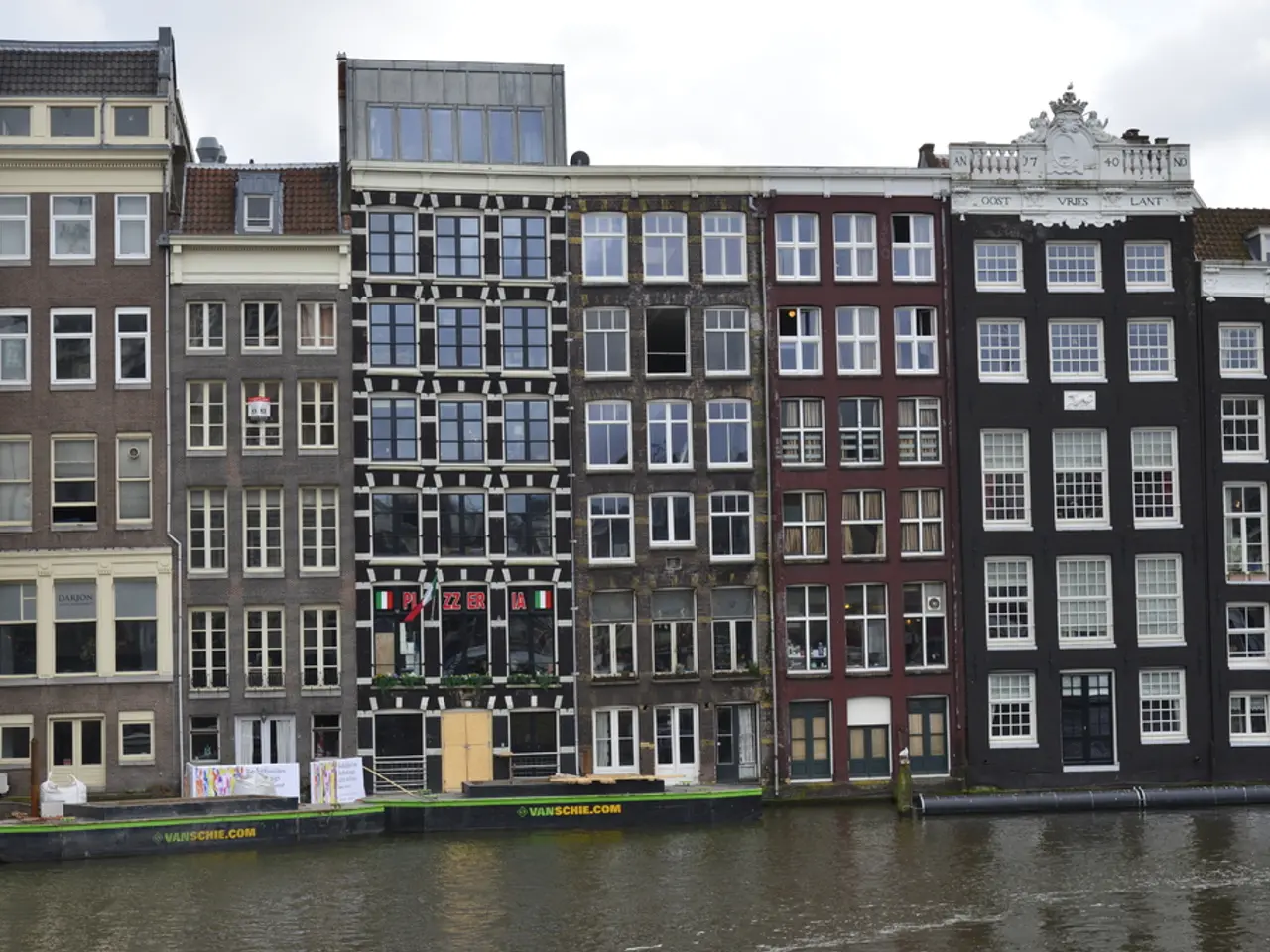German Residents Remain Cautious About Installing Air Conditioners
In the heart of Europe, Germany, a country known for its moderate climate and commitment to sustainability, has a unique relationship with air conditioning (AC). This relationship is rooted in historical, cultural, and environmental factors that have shaped public attitudes and policies.
Historically and culturally, air conditioning was often viewed in Germany as unnecessary or excessive. Many Germans traditionally favored energy-saving and environmentally conscious behaviors, reflecting collective values emphasizing sustainability and cautious energy use. This cultural disposition led to a skepticism of AC as an energy-intensive luxury rather than a necessity.
Environmentally, Germany’s strong emphasis on combating climate change and reducing carbon footprints has led to wariness toward technologies like AC that are seen as energy-heavy and contradictory to green goals. Germany prioritizes energy efficiency and renewable heating solutions (e.g., heat pumps) over widespread AC adoption. Energy agencies have promoted alternatives to fossil fuel dependence and pushed for heat pumps as smart, climate-friendly choices, but misinformation and political resistance have complicated acceptance of energy-intensive cooling technologies.
The increase in AC use is a recent shift prompted by hotter summers, climate change, and lifestyles increasingly featuring expat communities accustomed to AC comfort at home and work. However, skepticism lingers due to concerns about energy consumption and environmental impact, especially in a nation with strong climate policies and public discourse emphasizing renewable energy and conservation.
Many offices, shops, hotels, restaurants, and even hospitals in Germany lack adequate air conditioning. Germans are unfamiliar with the experience of coming from the heat into a seemingly ice-cold room. Cities like Dubai, Athens, Madrid, Bangkok, and Singapore, on the other hand, have experienced economic booms due to widespread AC adoption.
In the private sector, there is an increasing willingness to invest in air conditioning, but in the public sector and similar institutions, no change is expected. The German railway often faces issues with failing air conditioning in ICE trains. Uwe Franzke, managing director of the ILK, states that air conditioning is still viewed negatively in Germany due to costs, environmental concerns, and historical factors.
Air conditioners consume a large amount of energy and contribute to climate change. Many people in Germany may be foregoing additional air conditioning due to high electricity costs and the increasing number of heat pumps, which can also be used for cooling. A danger of extreme heat is that beyond 42 degrees body temperature is deadly.
Despite these challenges, there are signs of change. Eva Horn, a cultural scientist, suggests that the restraint towards air conditioning in the German-speaking world is due to cultural habits. In her book "Climate - A History of Perception" published in 2024, she explores this topic in depth. The book argues that a shift in cultural attitudes towards AC could pave the way for wider adoption, particularly as Germany grapples with the realities of a changing climate.
However, no short-term improvement in air conditioning usage is expected in the public sector and similar institutions. A recent survey found that only approximately 18% of Germans use air conditioning at home, with most opting for portable 'monoblock' devices. Air conditioners are often set too cold and can be perceived as unpleasant due to a standard temperature of 22 degrees Celsius and 50% humidity. Many Germans perceive air conditioning as harmful due to drafts, dry air, cold risk, noise, and reduced concentration and performance.
In conclusion, Germany's moderate climate and cultural preference for energy thrift historically reduced the perceived need for AC. Strong environmental values and climate policy foster skepticism toward energy-intensive air conditioning. Political and social debates around energy security and misinformation influence acceptance of cooling technologies. Recent heatwaves and demographic changes (expats) are driving increased AC adoption, gradually shifting attitudes but not fully overcoming skepticism. The future of air conditioning in Germany remains a complex and evolving issue.
- Germany's unique relationship with air conditioning (AC) is influenced by historical, cultural, and environmental factors that have fostered a skepticism towards AC as an energy-intensive luxury.
- Many public sector institutions in Germany, such as offices, shops, and hospitals, lack adequate air conditioning, reflecting the nation's energy-saving values.
- The private sector, however, is showing signs of increased willingness to invest in air conditioning, making it a complex and evolving issue in the future.
- In the field of science, environmental science and climate change researchers focus on combating climate change and reducing carbon footprints, which has led to wariness towards energy-intensive technologies like AC.
- In the realm of lifestyle and home-and-garden, a growing number of Germans are opting for heat pumps as energy-efficient cooling solutions, instead of traditional air conditioners.
- In education and self-development, the publication "Climate - A History of Perception" by Eva Horn in 2024 explores the cultural reasons behind Germany's restraint towards air conditioning and suggests a shift in attitudes could pave the way for wider adoption.
- In the realm of general news and sports, extreme heat related to climate change puts a focus on the importance of air conditioning for health-and-wellness reasons and helps drive acceptance of air conditioning technologies in Germany.




